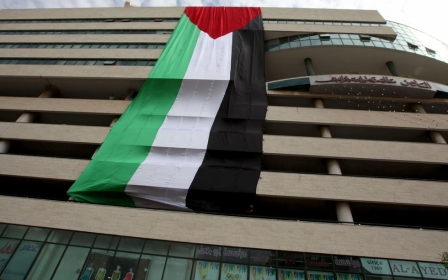G4S to pull out of Israel within two years

The world's largest security firm G4S says that it is selling its operations in Israel within the next two years, but has denied that it is because of a years-long boycott campaign.
G4S made the announcement when it released its end-of-year results on Wednesday, saying that it is selling its interests in Israel as part of a wider assets sale to increase profits.
It also said that it would suspend some other controversial projects, such as US youth-justice centres, in a bid to boost profits after shares fell 12 percent in part due to growing costs of providing contract housing for destitute asylum seekers.
The company has also warned shareholders that they risk losing $81mn if the government extends G4S's asylum housing contract for a further two years.
Over the past four years, the company, which reportedly employs 8,000 people in Israel with a turnover of $143mn, has been the target of a global BDS campaign.
While G4S denies that its move is linked to the campaign, Mahmoud Nawajaa, a spokesman for the Palestinian BDS National Committee, said that BDS had undoubtedly pressed G4S into closing shop in Israel.
“As at the height of the international boycott of apartheid South Africa, BDS pressure is making some of the world’s biggest corporations realise that profiting from Israeli apartheid and colonialism is bad for business,” he said.
“Investment fund managers are increasingly recognising that their fiduciary responsibility obliges them to divest from Israeli banks and companies that are implicated in Israel’s serious human rights violations such as G4S and HP because of the high risk entailed. We are starting to see a domino effect."
The campaign claims that G4S lost clients including private businesses, universities, trade unions, and UN bodies, with the Bill Gates Foundation divesting a stake worth $170m from the company following protests.
Israeli journalist and analyst Meron Rapoport, however, told Middle East Eye that "the real effect of BDS is minimal but [that] psychologically, it has an immense effect.”
Stay informed with MEE's newsletters
Sign up to get the latest alerts, insights and analysis, starting with Turkey Unpacked
Middle East Eye delivers independent and unrivalled coverage and analysis of the Middle East, North Africa and beyond. To learn more about republishing this content and the associated fees, please fill out this form. More about MEE can be found here.




